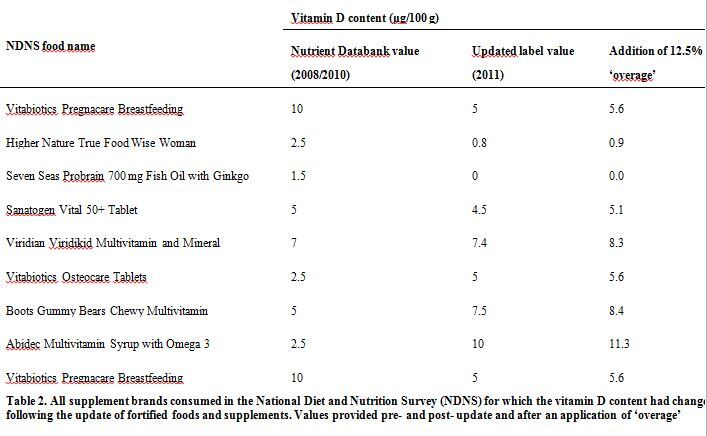The researchers looked at 289 vitamin D-fortified foods catalogued in 2008 and 2010 in the UK National Diet and Nutrition Survey (NDNS) Nutrient Databank and compared levels with industry websites, trade associations and manufacturers, and nutrition labelling on pack.
When they came to look at the data they found only 257 of the fortified foods remained on-market, with 31 having their vitamin D content altered, especially breakfast cereals, fat spreads and powdered malt drinks. 8 other foods were newly vitamin D-fortified.
When typical vitamin D overages were applied – the amount manufacturers typically overdose to account for shelf life degradation – the researchers said intake underestimation increased to 6%.
“Our analysis suggests that nutrient databases require regular updating, especially for nutrients that are added to foods by manufacturers,” the researchers concluded.
“Moving forward, we recommend that these new estimates of the vitamin D content of fortified foods and supplements should be used for future estimates of vitamin D intake in the UK until a further periodic update is conducted.”
The researchers noted vitamin D-fortified foods introduced after 2011 were not included and the food supplement picture was not complete due to the nature of international online sales.

In the study vitamin D included both ergocalciferol (D2) and cholecalciferol (D3).
Source:
Nutrition Bulletin
September 2014, Volume 39, Issue 3, pages 247–252 (Article first published online: 14/08/2014, DOI: 10.1111/nbu.12099)
‘Update of the vitamin D content of fortified foods and supplements in the UK National Diet and Nutrition Survey Nutrient Databank’
Authors:R. E. Allen, A. D. Dangour, A. E. Tedstone
